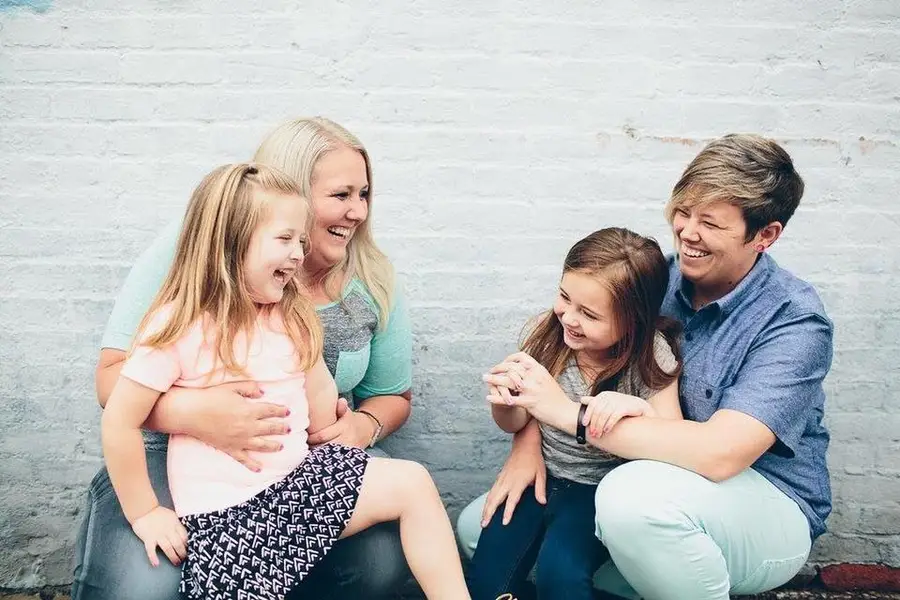In the broad spectrum of family dynamics, every color brings its own unique blend of challenges and rewards. As lesbian family therapists, they bring not just their professional expertise to the table, but also their personal experiences as well. This perspective provides a deeper understanding of the specific issues LGBTQ+ families often face. In this blog, we aim to share who is the lesbian family therapist, and what issues they can successfully address. We will also discuss a few tips to find the right therapist for your needs.
Contents
Who Is A Lesbian Family Therapist?
 A Lesbian Family Therapist is a licensed mental health professional who specializes in providing therapy and counseling services to lesbian couples and families. They are experienced in addressing the unique challenges and dynamics that lesbian couples and families may face. Their expertise enables them to create a safe, inclusive, and non-judgmental therapeutic space, wherein clients can feel free to express themselves. And work towards their mental well-being and relationship goals.
A Lesbian Family Therapist is a licensed mental health professional who specializes in providing therapy and counseling services to lesbian couples and families. They are experienced in addressing the unique challenges and dynamics that lesbian couples and families may face. Their expertise enables them to create a safe, inclusive, and non-judgmental therapeutic space, wherein clients can feel free to express themselves. And work towards their mental well-being and relationship goals.
These therapists draw from a range of therapeutic modalities. And, work with couples on issues like communication, trust, conflict resolution, and intimacy. When working with families, the focus may shift toward parenting strategies, sibling relationships, and maintaining a balanced family dynamic. They are committed to helping lesbian families thrive in a society that may not always understand or accept them.
What Common Issues They Can Address?
A Lesbian Family Therapist can address a wide array of issues, leveraging their specialized knowledge to provide the best possible care for their clients. Here are some common areas they address:
- Identity Issues
Navigating the complexities of sexual orientation and identity is a common concern. Therapists can provide guidance and support during the process of coming out, or when dealing with internalized homophobia.
- Discrimination and Stigma
Dealing with societal prejudice, discrimination, and stigma can lead to a variety of mental health issues, including anxiety, depression, and low self-esteem. Therapists can provide coping strategies and techniques to manage these stressors.
- Relationship Difficulties
Like any other couple, lesbian couples may face difficulties in areas like communication, trust, conflict resolution, intimacy, and sexual issues. Family therapists can provide strategies and techniques to help strengthen these areas.
- Family Planning and Parenting
Therapists can provide guidance and support for lesbian couples considering starting a family, whether through adoption, foster care, surrogacy, or artificial insemination. They can also offer parenting strategies and support.
- Child and Family Issues
For families with children, therapists can help address a variety of concerns. Including navigating the process of coming out to children, dealing with bullying or discrimination the children may face due to their parent’s sexual orientation, and facilitating open and honest family communication.
- Grief and Loss
Dealing with the loss of a loved one, whether it be due to death, or the end of a relationship, is a challenging process. Therapists can provide coping mechanisms and grief strategies to help individuals through these difficult times.
- Mental Health Issues
Therapists can address various mental health conditions, including anxiety, depression, PTSD, body image issues, and more. They provide a safe space for discussion, along with treatment plans tailored to each individual’s needs.
What Approaches Are Used By A Lesbian Family Therapist?
 A Lesbian Family Therapist utilizes a variety of therapeutic approaches based on the specific needs of the client or family. Here are some common therapeutic modalities they might use:
A Lesbian Family Therapist utilizes a variety of therapeutic approaches based on the specific needs of the client or family. Here are some common therapeutic modalities they might use:
Cognitive Behavioral Therapy (CBT)
CBT is based on the concept that our thoughts, feelings, and behaviors are interconnected. Negative thought patterns can lead to harmful behaviors and emotional distress. The therapist works with the client to identify these patterns and replace them with healthier alternatives. For instance, a lesbian individual struggling with internalized homophobia may harbor self-deprecating thoughts. Through CBT, the therapist can help the client challenge these thoughts, promote self-acceptance, and reduce associated stress and anxiety.
Solution-Focused Brief Therapy (SFBT)
This approach is distinctly future-focused and goal-oriented. Instead of delving into past issues or conflicts, the therapist and client collaboratively develop a vision of the desired future and work towards it using the client’s existing skills and resources. For instance, a lesbian couple experiencing communication difficulties might set a goal to have more effective, respectful conversations. The therapist would then help them identify strategies that have worked in the past or new techniques to apply.
Family Systems Therapy
Family Systems Therapy emphasizes the interdependence of family members. Problems are viewed in the context of family dynamics, not just as individual issues. Therapists guide families in understanding these dynamics, how they contribute to conflicts, and how changes in one member’s behavior can positively affect the whole system. For example, if a child of a lesbian couple is acting out due to perceived discrimination, the therapist might work with the entire family to foster a supportive environment and create strategies to handle external prejudice.
Narrative Therapy
This therapeutic approach encourages clients to see themselves as separate from their problems, thereby enabling them to explore their identity outside of these issues. Clients are encouraged to recount their life stories, through which they can identify their strengths, understand their values, and craft a more empowering self-narrative. For instance, a lesbian woman who has faced societal discrimination may focus on resilience and courage in her life story, fostering a stronger sense of self and ability to cope.
Emotionally Focused Therapy (EFT)
Primarily used with couples, EFT helps in establishing a secure emotional bond between partners. It aids in identifying and understanding negative interaction patterns and emotional responses. The therapist helps the couple reframe these patterns in the context of unmet emotional needs and assists them in expressing these needs openly. For example, if a partner in a lesbian couple often reacts angrily, it might stem from feelings of insecurity or fear. EFT would guide the partners in recognizing, discussing, and addressing these underlying emotions, leading to healthier communication and deeper emotional connection.
It’s important to note that therapists often use a combination of these approaches. That is tailored therapy to meet the unique needs of each client or family.
How To Find a Lesbian Family Therapist Near Me?
 Finding a Lesbian Family Therapist near you can be accomplished through a few different channels. Here are some steps to help you in your search:
Finding a Lesbian Family Therapist near you can be accomplished through a few different channels. Here are some steps to help you in your search:
- Online Directories
Websites like MantraCare, TherapyMantra, and the American Association for Marriage and Family Therapy (AAMFT) have extensive directories of therapists. You can filter by location, specialization (such as LGBT issues), therapy type, and more.
- Insurance Provider
If you have health insurance, check with your provider for a list of in-network therapists who specialize in working with lesbian families. This can be a cost-effective way of receiving therapy.
- LGBTQ+ Organizations and Resources
Reach out to local LGBTQ+ community centers or national organizations like the Trevor Project, PFLAG, and the National Center for Lesbian Rights. They may be able to provide referrals to lesbian-friendly therapists in your area.
- Word of Mouth
Recommendations from friends, family members, or other trusted individuals within the LGBTQ+ community can be extremely valuable.
- Teletherapy
If you’re comfortable with virtual sessions, consider teletherapy platforms like PrideMantra or CoupleMantra. These platforms can connect you with qualified therapists across the country, broadening your options.
- Consult with Potential Therapists
Once you have a list of potential therapists, reach out to them. Many offer free initial consultations. During this time, you can ask about their experience working with lesbian families, their approach to therapy, and any other questions you may have.
Remember, finding the right therapist might take some time. The most important thing is that you feel comfortable with your therapist and feel that they understand and respect your unique experiences and identities.
Conclusion
In conclusion, the role of a Lesbian Family Therapist extends far beyond traditional therapy. These professionals are advocates, sounding boards, and guiding lights for individuals, couples, and families navigating the unique challenges and joys of lesbian family life. Their understanding of the specific struggles faced by this community and their specialized training equips them to offer much-needed support and guidance.
Remember, it’s okay to ask for help, and it’s okay to take time to find the right fit. You are taking the first steps towards a healthier and happier life, and that’s what truly matters. So take a deep breath, reach out, and begin your journey. You’re not alone, and you are seen.
Life may sometimes be challenging if you are a lesbian, but Online Lesbian Counseling can help. Get experienced LGBTQ therapists at PrideMantra: Book a trial LGBTQ therapy session


